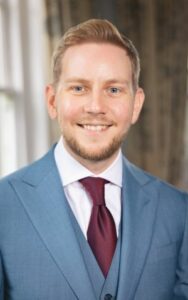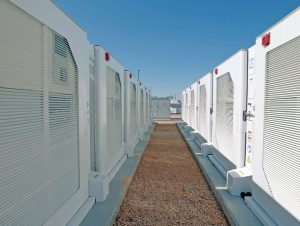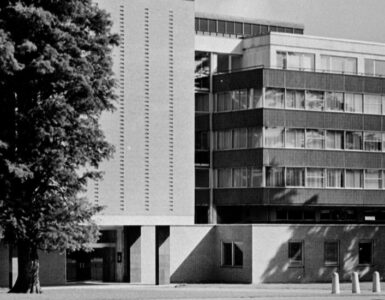Reading graduate, Dr Marek Kubik, has become a key figure in the global drive for sustainable energy storage, as he uses his expertise to help the world meet its target of net zero emissions by 2050, as set by the Paris Agreement.
“I think engineering and technology have a critical role in our future prosperity and survival as a species,” Marek shared. “Key to this is accelerating the world’s transition to sustainable energy, for which energy storage is the critical missing piece.
“Electricity is one of the most fundamental and universal technologies underpinning our society. Ensuring it is clean, reliable, accessible and affordable for all is about as noble and important a pursuit as I can think of.”
 An innate curiosity
An innate curiosity
Engineering runs back a few generations in the Kubik family, and this, combined with his own “innate curiosity”, laid out the pathway for Marek’s career. After completing an engineering master’s degree at Durham University, Marek came to Reading to pursue doctoral studies in the School of the Built Environment.
He recalled: “My studies investigated the impact of high levels of variable or intermittent renewable generation, such as wind power, on the operation of electricity grids. This led to proposing some of the solutions to help us on the pathway to 100% sustainable energy.”
While Marek’s work in terms of renewable energy is by no means complete, his doctoral work is already making a difference.
He said: “The achievement that I’m most proud of is seeing the research I completed become directly relevant and actionable to enable the rapid acceleration of renewable generation.
“My research led to the development of the first utility-scale commercial battery energy storage facility in Europe. It has served as a catalyst for massive energy storage growth that is vital for enabling the UK’s legally-binding target of net zero emissions by 2050.”
A pioneer in energy storage
After completing his doctoral studies at Reading, Marek had a clear next career step lined up to continue his pursuit for sustainability.
He said: “I went on to work for my industry sponsor AES Corporation, taking a direct report role to the President of their UK and Ireland business, and informing their growth strategy.
“This led me to take the lead on building the investment case for a 10MW energy storage project – at that time one of the largest batteries in the world – which was completed in 2015. From this initial 10MW energy storage project, there are now over 4,200MW of grid-scale batteries operational in Great Britain.
“I then took a leap of faith and moved to Amsterdam to further establish and scale a business to sell energy storage technology to other developers, which – after a joint venture with Siemens at the end of 2017 – became known as Fluence.”
Marek was part of the founding team of Fluence, a world-leading energy storage technology and services company, which designs, installs and guarantees the long-term performance of huge battery energy storage systems. These systems help integrate renewable energy to the grid and accelerate the pathway to a 100% sustainable energy system.

At the end of 2020 Fluence reached ‘unicorn’ status – which is the term used when a privately held startup business reaches a valuation of $1 billion. Fluence quickly became a driving force in the world’s transition to clean energy, listing on the NASDAQ Stock Market in a $4.7 billion IPO in 2021.
In 2023 Marek moved to NEOM, which is the world’s largest sustainable infrastructure project, working to build a 100% renewable power grid by 2030 in Saudi Arabia.
Marek said of his role there: “The transition from an 80% renewable electricity grid to a 100% net renewable grid is the hardest step and requires some deeply integrated thinking, but showing it is possible at scale is important for the rest of the world to follow.”
Marek also serves as an Advisor to the United Nations and a Board Advisor for Reichmuth & Co Infrastructure and is a recognised LinkedIn “Top Voice” for energy storage.
Achieving 100% sustainable energy
For several years after leaving Reading, Marek remained a Visiting Fellow which saw him return to the University and co-author some academic publications. He was also honoured in the Forbes 30 Under 30 list in 2017 and he firmly believes that his doctoral studies have played an important role in his journey to helping create a more sustainable future for all of us.
He said: “If you can find the right balance between academia and industry, a doctorate is a real propellant to a successful career.
“I’m a firm believer in the power of technology to drastically advance our living standards and wellbeing. My goal is to get us to a 100% sustainable energy future as fast as possible.
“My advice to new graduates would be to focus on T-shaped learning – have a depth of expertise in one area, but a broad knowledge across many other areas. This helps contextualise your learnings as well as keeping options open for future career pivots. Plus, engage with your alumni community to open yourself up to valuable career advice and inspiration as to possible future career pathways.”
Discover more about Marek, or find out more about postdoctoral study in the School of the Built Environment.
Stay connected with your community – join our LinkedIn group, follow us on Facebook, X (Twitter) and Instagram @uoralumni, and update your details today to stay in touch and subscribe to receive CONNECTED.






